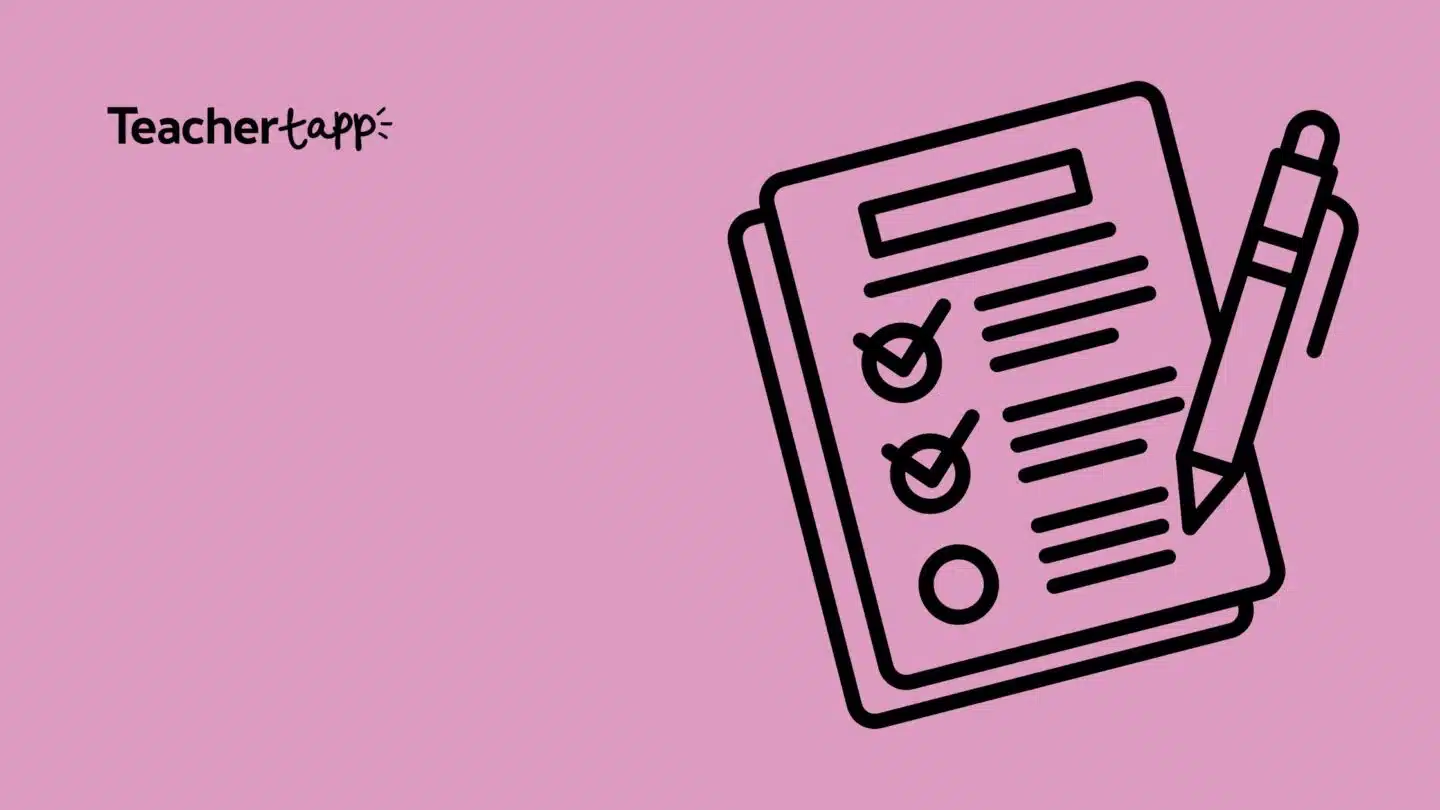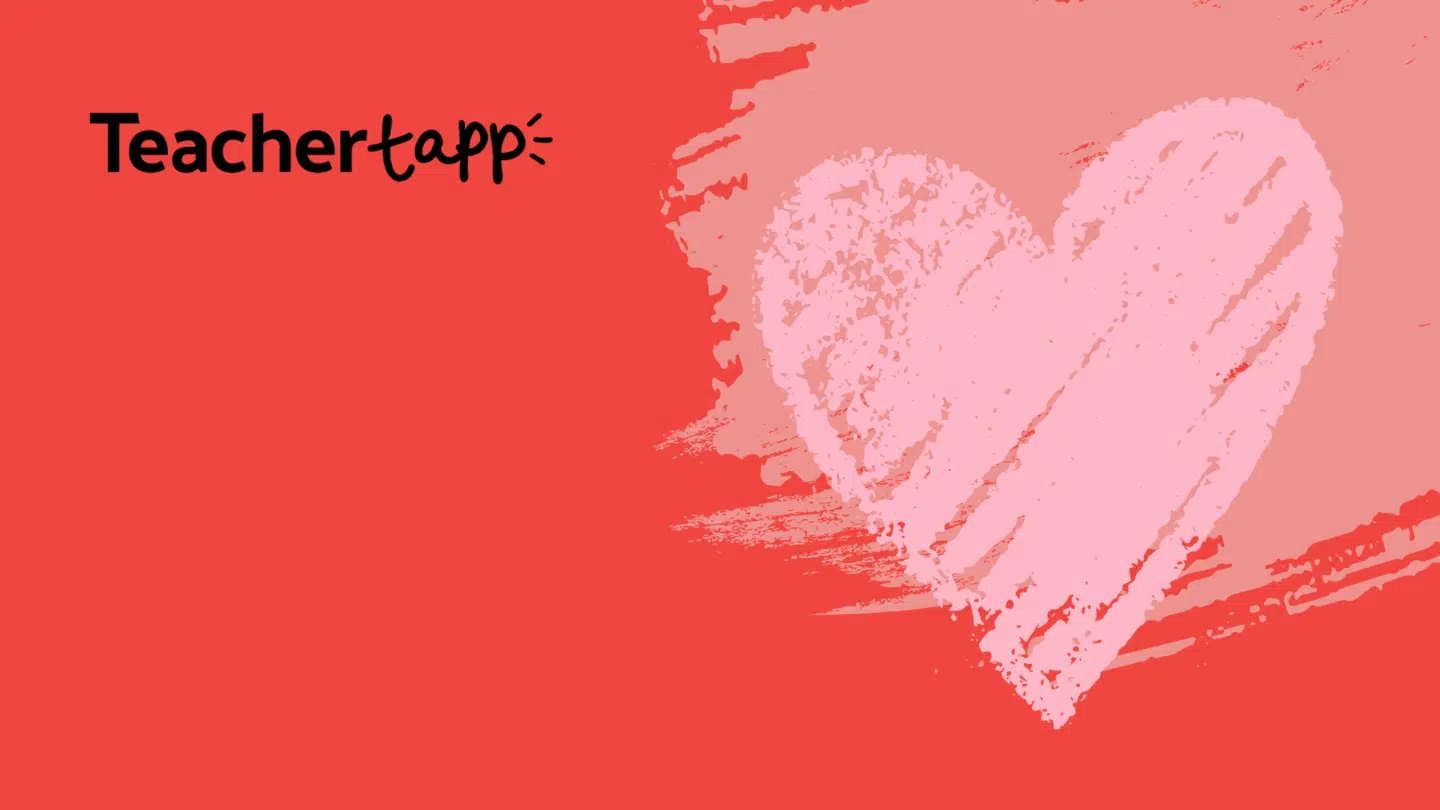
Hello Teacher Tappers!
A new curriculum is on its way and we are now a step closer to seeing what it will look like in full with the publishing of the National Curriculum and Assessment Review following a call for evidence from teachers and relevant bodies. Teacher Tapp were one of those organisations who submitted evidence, and we were pleased to spot our findings mentioned FOUR times!
But what do Tappers make of the review? Let’s jump into the results…
New curriculum reactions
If you haven’t had a chance yet to see the contents of the new curriculum – don’t worry. On the day itself, 43% of teachers and 31% of school leaders hadn’t had a chance to look – and when we followed it up after the weekend, there were still many teachers who hadn’t had a chance to look at it (30% and 17% respectively).
When we first asked, among those who HAVE seen it – feelings were more positive than negative.
Primary teachers:
34% positive, 20% negative and 46% unsure
Secondary teachers:
38% positive, 23% negative and 39% unsure
Then after one week – not much had changed…
Primary teachers:
38% positive, 17% negative and 45% unsure
Secondary teachers:
41% positive, 21% negative and 38% unsure
Subject-by-subject reactions
Each subject will be impacted by the changes in a different way, and the subject-by-subject breakdown reveals more about how each of the changes has hit home.
Arts, including D&T are the most optimistic about the changes (66% optimistic) – whereas languages are the least enthusiastic (24% optimistic). This is likely to be explained by the EBacc changes (more on that in a minute).
KS2 teachers found out they were waving goodbye to the Grammar and Punctuation and Spelling test (GPS), and this might explain why 40% report feeling optimistic about the changes, compared to 32% of EYFS/KS1 teachers.
Science teachers were also one of the subjects to report low numbers of optimism with just 33% reporting they felt optimistic, and 26% feeling negative (the second highest with only languages teachers ahead of them). This might be linked to the news about changes to science entries – keep reading to find out more about their feelings towards this…
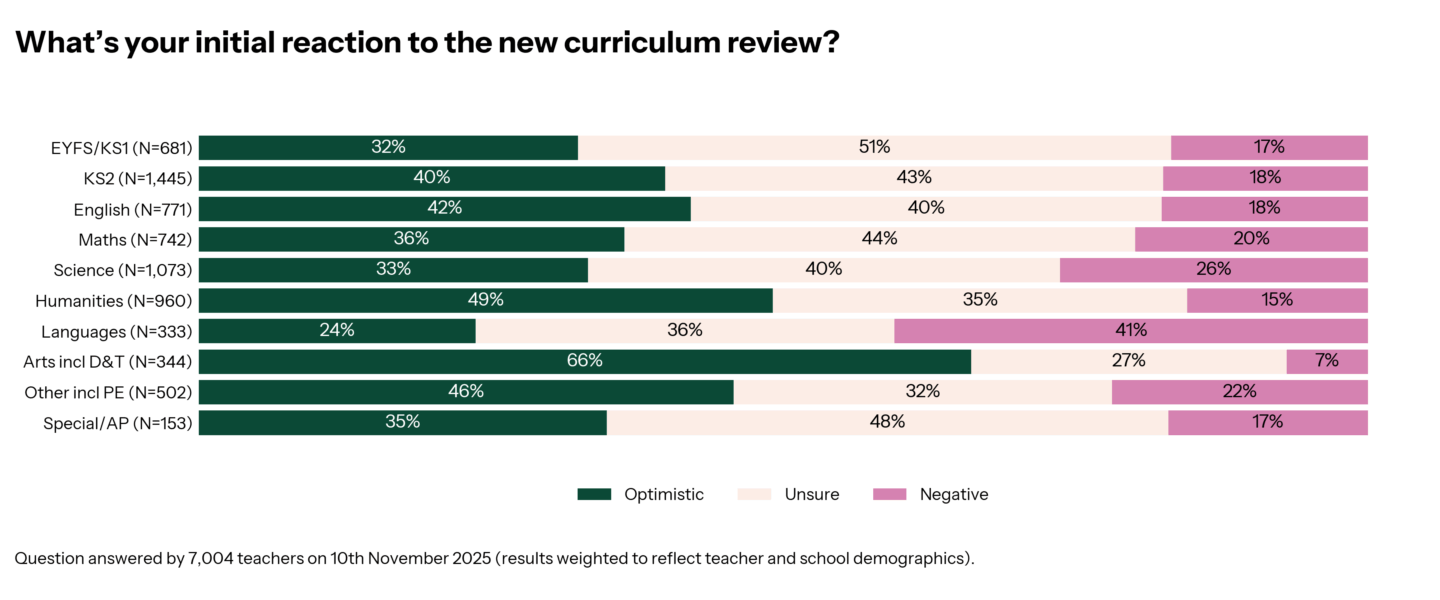
Goodbye EBacc
One of the big pieces of news in the review was the removal of the EBacc performance measure, and this news has clearly pleased some subjects more than others.
More than two-thirds of MFL teachers report that they believe the change will make the curriculum in their school less broad.
Arts, including D&T teachers, feel completely different, and 68% believe it will make the curriculum in their school more broad.
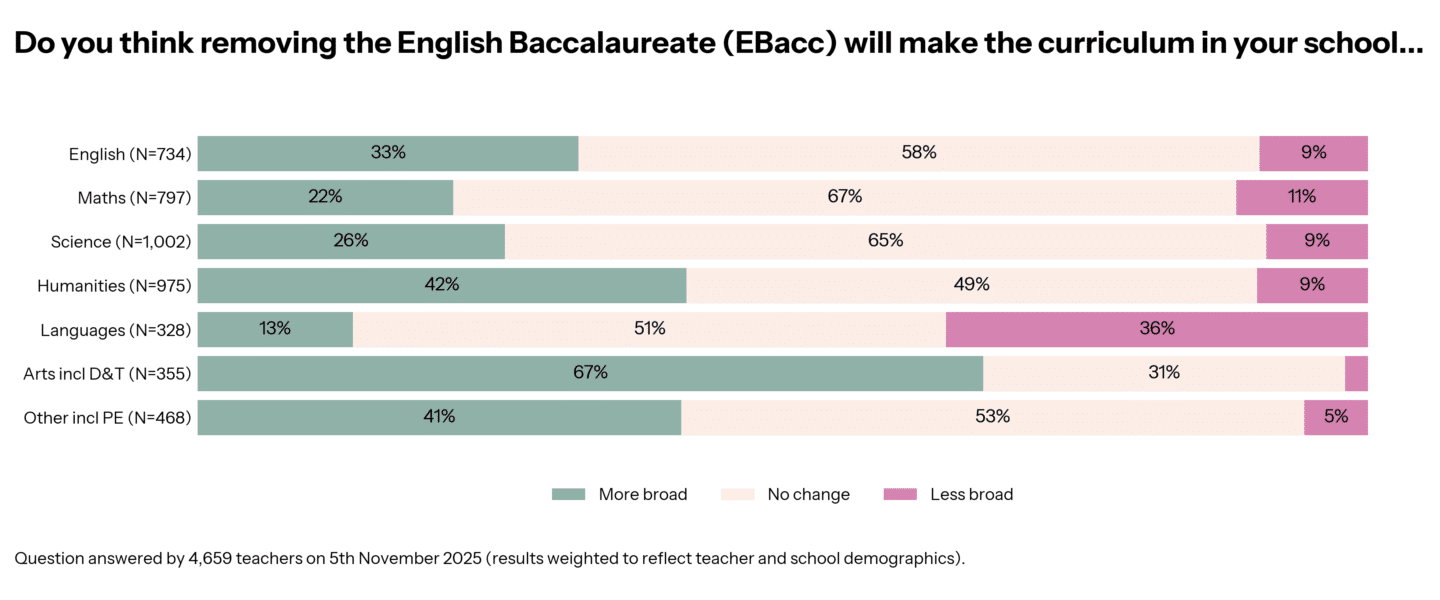
We are already teaching it…
Another announcement last week was the news that students will cover media literacy and financial literacy, law and rights, democracy and government, and climate education under the subject of citizenship in primary schools.
However, how common are these topics already? Apparently, quite common!
Almost half of KS2 teachers are already teaching democracy and government (46%), and a similar number climate education (43%). In fact, just 29% of KS2 teachers report they weren’t teaching ANY of the topics on the list.
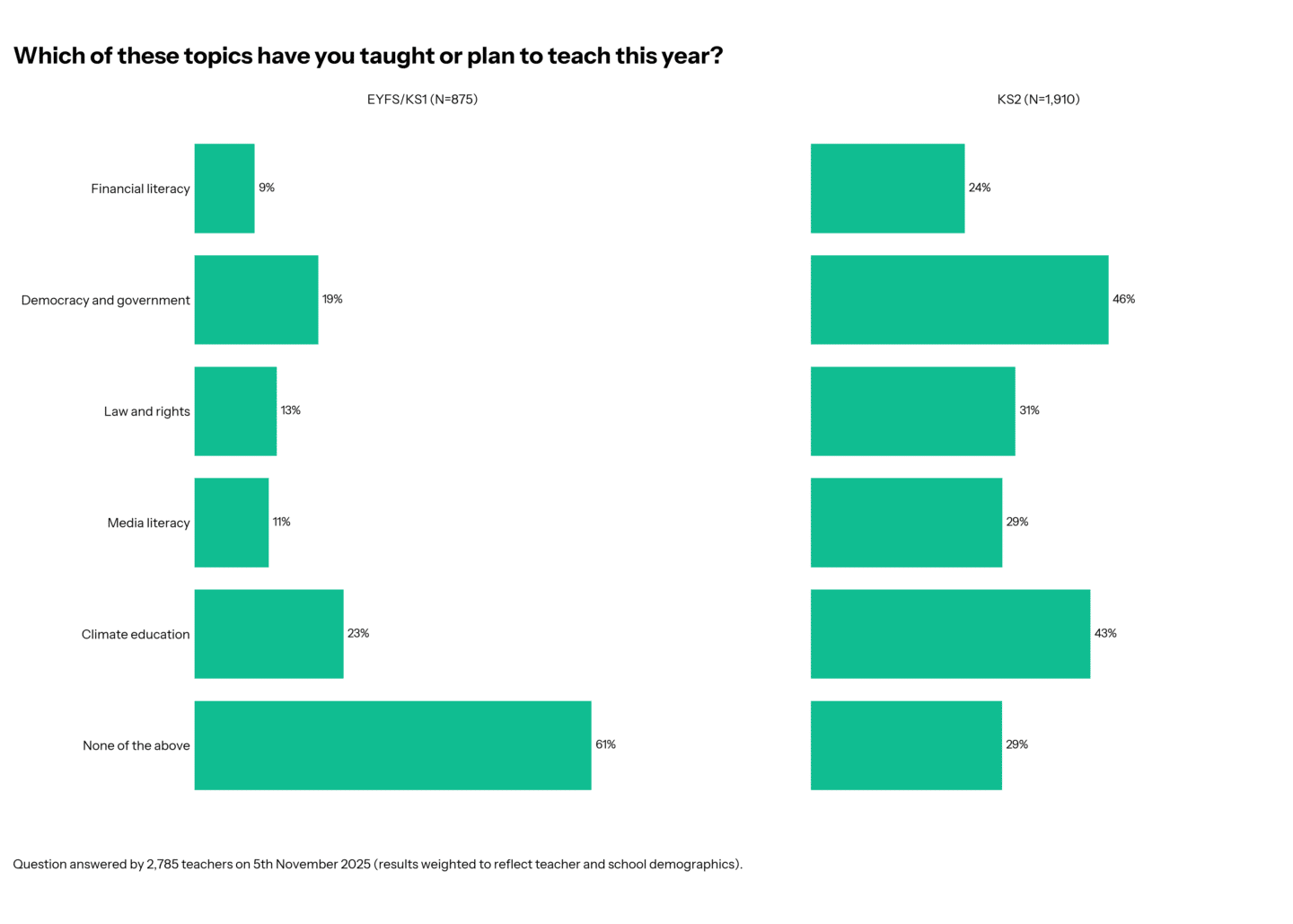
Triple science
Triple science is going to be “an option for all” in the future…but are schools ready to deliver more hours of chemistry, biology and physics?
Worryingly, not yet. More than half (52%) reported that they did not have the staff or resources to be able to offer triple science to all students.
Reading tests in year 8
The news that there would be reading tests in KS3 was in the papers ahead of the release of the review; however, support for the tests appears to be positive.
The majority of English teachers support the test (53%), possibly due to the hope that the test will bring focus to a time in school life where students can feel GCSEs are so far away, and behaviour takes a dip.
Among EYFS/KS1 and KS2 teachers, support was more muted, with only 27% of EYFS/KS1 supporting the test, and 35% of KS2 feeling the same.
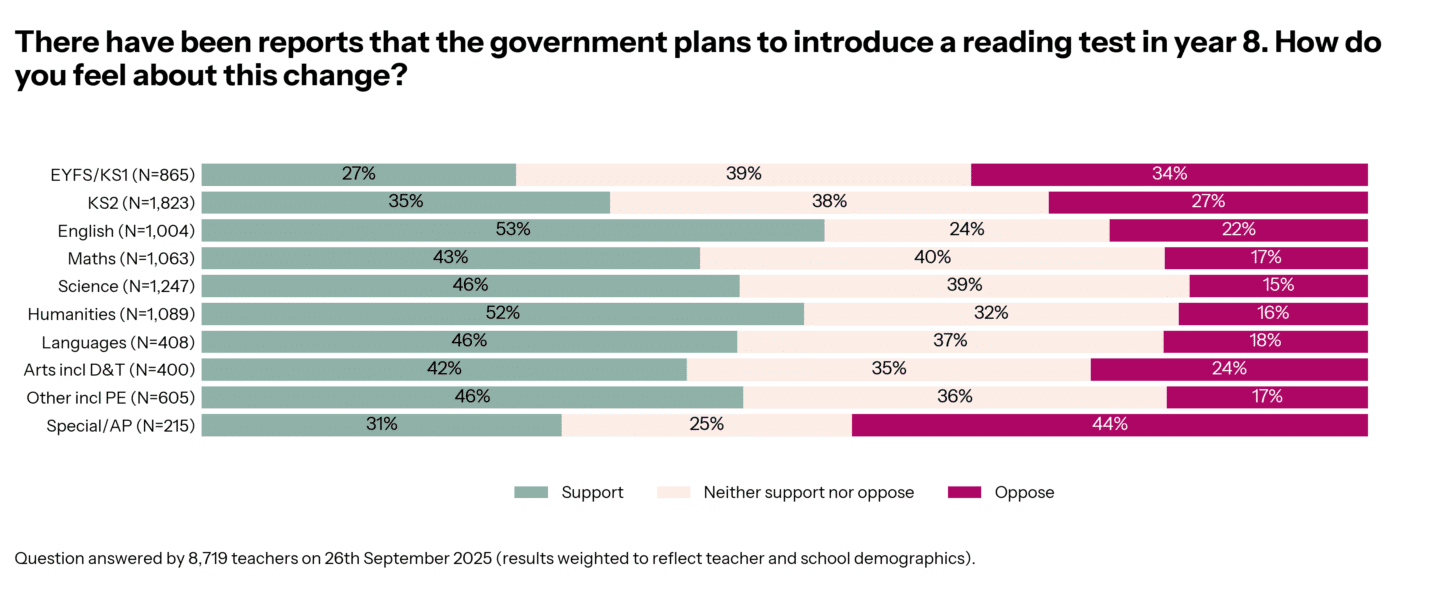
What next?
Now comes the interesting bit – watching how these reforms unfold in real classrooms.
Your voice matters, and we’d love to share what teachers think. Send your thoughts to england@teachertapp.co.uk and join the conversation. 💚

